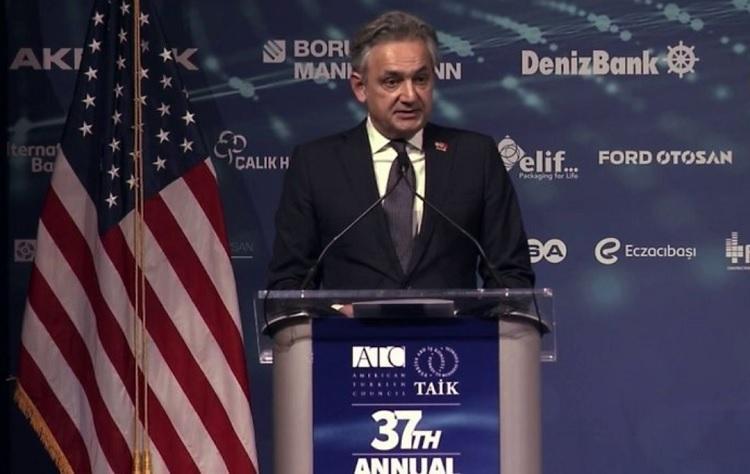
The Turkey-U.S. Business Council (TAİK) has penned a letter to the U.S. President-elect Joe Biden proposing a commission to strengthen relations and solve the problems between the two countries on Dec. 17.
Signed by TAİK Chairman Mehmet Ali Yalçındağ, the letter congratulated Biden for his victory in the U.S. presidential election.
“You have been a devoted public servant to the American people for decades and your achievement is another testament to your distinguished career.”
Representing TAİK’s activities since its establishment on 1985, the group said, “TAİK members represent some of the largest and most prominent companies in Turkey and have invested billions of dollars in the United States supporting tens of thousands of American jobs in local communities.”
“The current bilateral trade volume stands at around $25 billion per year,” said the business group.
“TAİK strongly supports increasing this to $100 billion per year and has been working to make this goal a reality. To achieve this goal, TAİK supports establishing a free trade agreement between our two countries.”
The business group then reminded the U.S. sanctions imposed on Turkey due to its procurement of Russian-made S-400 missile systems and called the sanctions “a move which TAİK believes is counter to our mission of bringing the two economies and countries closer.”
The business group also offered to form a commission for a solution to the problems in the letter.
“The business community in Turkey believes the United States and Turkey would be better served to find ways to strengthen the relationship,” said TAİK in the letter, hoping the Biden administration will make the issue “a priority upon taking office.”
“We propose establishing a bi-national commission in which Turkey and the United States can create an open forum to regularly communicate, exchange ideas, find ways to cooperate and negotiate problems.”
TAİK reminded the success of the previous commissions deployed by Democratic administrations, saying, “Our two countries each have needs and expectations and differences, but it is abundantly in the interests of both to strengthen the relationship, not weaken it. A bi-national commission would create a platform upon which these issues can be discussed.”
The group also stressed their belief that “the world benefits from a strong, cooperative partnership between our two countries.”